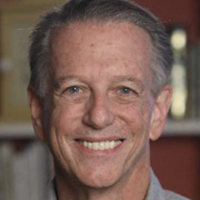By Lee Chottiner
Community Editor
Miracles still happen, according to the Rev. Joe Phelps – even when you least expect them.
For instance, the retired cleric recently taught a four-week virtual class on white privilege for the Earth and Spirit Center (ESC), a Louisville interfaith spirituality center. An algorithm on the ESC website was supposed to cut registrations off at 30.
It didn’t work.
“Anyone who wanted could sign up,” Phelps recalled. “We ended up with 450 people.”
Phelps quickly readjusted his class format to suit the somewhat higher enrollment (lectures only, no discussion). “It was well received,” he said.
And way more people heard what he came to say: There is a disturbing privilege disparity between Black and white people in American society.
That disparity is one reason why, after 22 years as pastor of the Highland Baptist Church, Phelps became justice coordinator at the ESC: to promote racial equality.
“Over the years, my understanding of scripture moved my ministry more toward where God is at work in the world today, and how to bring about healing,” he said. “For me, it took me into the Black community.”
His work is why Phelps has been named this year’s winner of the Blanche B. Ottenheimer Award, the highest honor presented by the Jewish Community of Louisville. He will accept the prize at a virtual program at 6:30 p.m., Wednesday, Aug. 5, before leading a discussion about “white fragility” (the responses of white people when confronted with their privilege).
In addition to his teaching at ESC, Phelps, who also co-chairs EmpowerWest, a black-white clergy coalition, has been getting personally involved in issues surrounding the Breonna Taylor shooting, meeting with Mayor Greg Fischer to urge him to take disciplinary action against officers involved in the incident.
He also has joined the protests for racial justice, as has his son, who was standing next to Tyler Gerth the night he was shot in Jefferson Square Park.
“In every protest I’ve attended, I’ve been the oldest by about 20 years,” Phelps said, “and everyone I see stays socially distant from one another. It’s not a perfect scenario, but we do the best we can.”
For those who can’t be at the protests or are uncomfortable with them, he said there are other ways to be part of the change.
“Other people need to stay home and watch film of protests. Still, others need to write letters to the editor,” he said. “There are multiple ways to be involved in the work.”
But protest remain a necessity, he continued.
“Someone has to be out on the streets. There are times that require some people to get out and protest to show the world the depth of our passion for truth and rightness.”
The Ottenheimer Award is given to people in the greater Louisville community, who, in reflecting the values of its namesake, advance the cause of social development for people living here. Last year’s winner was Kentucky poet and activist Wendell Berry.
Blanche B. Ottenheimer was a Jewish Louisville community activist. In addition to serving as president of the National Council of Jewish Women, Louisville Section, she worked for passage of the city’s Model Registration Law, which curbed corruption and led to cleaner elections.
She also founded the Louisville Conference of Jewish Women’s Organization and was one of the first women to serve as a board member of the YMHA (the present day Jewish Community Center).
A pacifist by nature, Ottenheimer opposed fascism during the Hitler era through education, disclosure and the courts.
“I’m deeply honored to be recognized by the Jewish community,” Phelps said of the award. “All I do is my job, do what I’m supposed to do, and that is to be not only a pastor in a church, but to be a public voice for God’s dream of harmony and justice and peace.”





I’ve called Pastor Joe a prophet for years. Absolutely thrilled has has been given this wonderful award. Mazal tov, Joe.
This is just the best news, well done Pastor Joe!